MARKET OVERVIEW
The Global Automotive Steel Wheels market is indispensable in the industry, determining the manufacturing and distribution of long-lasting and cost-efficient wheel solutions. As far as steel wheels are concerned, strength, price, and capability to tolerate the extensive use of the wires on the road, make it still stand. The market is based on the production, technological advancement, and supply of steel wheels for passenger cars, commercial vehicles, and off-road applications. Steel wheels remain part of the evaluation with automakers and fleet operators evaluating items in their vehicles because they both offer flexible driving environments.
Manufacturers in this global market Automobile steel wheels are being driven by thorough research to improve the production method in durability, weight optimization, and environmental resistance. Raw material choice and manufacturing techniques play a significant role in determining the strength and life span of these wheels. They provide a better ratio between performance and costs, unlike alternative options like alloy wheels. Therefore, this market will continue catering to the demands of automobile manufacturers seeking reliable solutions for vehicles operating under extreme ruggedness and high-load conditions.
The market will keep recording progressive improvements in design and efficiency because of advances in metallurgy and fabrication. High-strength steel alloys combined with precision engineering will enable even lighter yet stronger wheels to be produced in the Global Automotive Steel Wheels market. Corrosion-resistant coatings with state-of-the-art finishing techniques alongside superb manufacturing productivity will enhance the lifespan of the wheels and lessen maintenance worries for the vehicle owner. The desire for personalized steel wheels will also determine the course of the market in the future since all the first tier and aftermarket suppliers and automotive assembly manufacturers will offer styles that harmonize with vehicle aesthetics yet maintain structural integrity.
Commercial transportation will continue to be an important sub-market in the Global Automotive Steel Wheels market due to fleet operators focusing on durability and cost efficiency. Steel wheels remain the preferred option for heavy-duty trucks, trailers, and buses, as they can sustain great weight loads without compromising stability. Vehicle manufacturers will adjust the designs of the steel wheels to enhance the aerodynamics and fuel efficiency of their products while ensuring that these wheels fit into the wider industry trends in sustainability and operational performance.
The aftermarket segment of the Global Automotive Steel Wheels will nevertheless provide customization, replacement, and retrofitting. Vehicle owners will be seeking products that will serve multi-functional benefits as well as aesthetic values. Steel wheels will continue being an option for users that want high performance in off-road conditions; they will also be a budget-friendly option for seasonal tire changes.
Global Automotive Steel Wheels market is estimated to reach $14,424.6 Million by 2032; growing at a CAGR of 1.8% from 2025 to 2032.
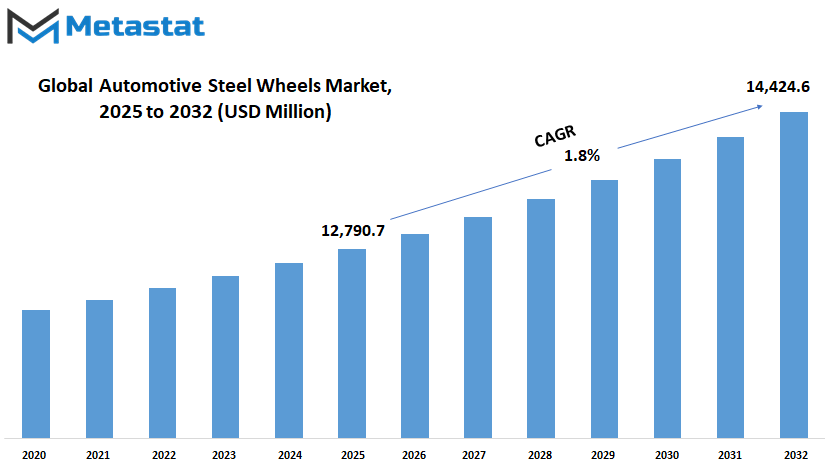
GROWTH FACTORS
The Global Automotive Steel Wheels market shall be triumphant under the most flourishing factors to shape the future of the industry. The economy of steel wheels is perhaps one of the most immense to growth. Steel wheels are much economical vis-a-vis alloys, and usually are popular with cost-focused buyers and utility vehicles. In many parts of the world, where one of the strongest parameters in cost vehicle purchase, steel wheels are still the major preference of most manufacturers due to reduced production costs. This kind of cost superiority not only favors automakers but also attracts a consumer base who is looking at durable, reliable options without putting an added economic dent in the overall price of a vehicle.
Makings for demand that are as important as economics durability. These comprise incredible strength, thus making them terrific for service in heavy duty applications. Commercial trucks, off-road vehicles, and industrial transport equipment often employ such wheels since they have high tolerability with respect to rough terrains and heavy loads. Therefore, they highly withstand extreme conditions while not easily cracking or bending, and this proves more feasible as compared to using alloy wheels in challenging environments. For businesses that operate large fleets of commercial vehicles, steel wheels provide a dependable and long-lasting option while combing the long-term cost of maintenance.
However, certain limitations are there to inhibit the market growth by these benefits one of which is the primary concern i.e. weight. Comparing steel wheels to alloy wheels, these are heavier thus giving impact in fuel efficiency and overall performance of the vehicle. For passenger cars and sports vehicles where weight cutting is important for the speed and efficiency only yields disadvantage. Manufacturers have been known to produce super-light models that are fuel-efficient and, thus, use alloy in order to maximize handlings and accelerations; such preferences may, therefore, slow down the adoption of steel wheels in some segments of vehicles.
The aesthetic appeal is also one of the influencing factors in consumer choices. Steel wheels are designed more simply and utilitarian, with very limited customization compared to alloy wheels available in several designs and finishes. Thus, steel options are not very appealing in those markets that are more aesthetically oriented since the prestige or style wheel designs normally attract consumers to go for alloy wheels.
Future opportunities- Advancing developments in manufacturing processes and materials are likely to open up new avenues for business. Facility in the production of steel wheels without compromising durability and at the same time would be able to take care of the concerns of fuel efficiency and performance. Innovations in the composition and the production techniques of steel will probably reduce weight without putting a dent on pricing and just as these improvements start shaping up, steel wheels are likely to gain much wider acceptance across different vehicle categories ensuring continued growth at the market.
MARKET SEGMENTATION
By Type
The growth of the Global Automotive Steel Wheels market shall be triumphant under the most flourishing factors to shape the future of the industry. The economy of steel wheels is perhaps one of the most immense to growth. Steel wheels are much economical vis-a-vis alloys, and usually are popular with cost-focused buyers and utility vehicles. In many parts of the world, where one of the strongest parameters in cost vehicle purchase, steel wheels are still the major preference of most manufacturers due to reduced production costs. This kind of cost superiority not only favors automakers but also attracts a consumer base who is looking at durable, reliable options without putting an added economic dent in the overall price of a vehicle.
Makings for demand that are as important as economics durability. These comprise incredible strength, thus making them terrific for service in heavy duty applications. Commercial trucks, off-road vehicles, and industrial transport equipment often employ such wheels since they have high tolerability with respect to rough terrains and heavy loads. Therefore, they highly withstand extreme conditions while not easily cracking or bending, and this proves more feasible as compared to using alloy wheels in challenging environments. For businesses that operate large fleets of commercial vehicles, steel wheels provide a dependable and long-lasting option while combing the long-term cost of maintenance.
However, certain limitations are there to inhibit market growth by these benefits one of which is the primary concern i.e. weight. Comparing steel wheels to alloy wheels, these are heavier thus giving impact in fuel efficiency and overall performance of the vehicle. For passenger cars and sports vehicles where weight cutting is important for the speed and efficiency only yields disadvantage. Manufacturers have been known to produce super-light models that are fuel-efficient and, thus, use alloy in order to maximize handlings and acceleration; such preferences may, therefore, slow down the adoption of steel wheels in some segments of vehicles.
The aesthetic appeal is also one of the influencing factors in consumer choices. Steel wheels are designed more simply and utilitarian, with very limited customization compared to alloy wheels available in several designs and finishes. Thus, steel options are not very appealing in those markets that are more aesthetically oriented since the prestige or style wheel designs normally attract consumers to go for alloy wheels.
Advancing developments in manufacturing processes and materials are likely to open up new avenues for business. Facility in the production of steel wheels without compromising durability and at the same time would be able to take care of the concerns of fuel efficiency and performance. Innovations in the composition and the production techniques of steel will probably reduce weight without putting a dent on pricing and just as these improvements start shaping up, steel wheels are likely to gain much wider acceptance across different vehicle categories ensuring continued growth at the market.
By Vehicle Type
The global automotive steel wheel market is set to undergo major upheaval as it adjusts to the newer requirements emerging in the automotive industry. Steel wheels have always been favored for their strength, comparatively low cost, and high endurance and, thus, have managed to find their applications in various categories of vehicles. Looking to the future, the advancements in vehicle design, the preference changes among consumers, and economic growth in the regions will be the determining factors for the growth of this market.
When it comes to passenger vehicles, steel wheels still dominate the car and SUV segments. This makes the wheels even more an attractive application in emerging markets, where everything depends heavily on the economic aspect. Demand for trustworthy and economical vehicles fitted with steel wheels is likely to increase as more individuals in developing countries opt for personal transportation. Manufacturers will gravitate more toward improving the aesthetic and performance value of steel wheels to cover a wider range of consumer tastes.
Steel wheels are widely embraced by light commercial vehicles, endowed with capacities for tremendous loads and bumpy conditions. With the emergence of e-commerce and the growing requirement for efficient logistics solutions, the use of such vehicles will nonetheless see rising trends. Chances of sustaining the demand for steel wheels that can take on the challenge posed by the delivery and service industry are thus boosted. Investments in the development of lighter yet stronger steel wheels for fuel efficiency without the loss of strength may be looped in by manufacturers.
Heavy-duty steel wheels are the sole means of support for heavy-loads and long-mileages for heavy commercial vehicles, including trucks and buses. Deployment of these vehicles is likely to increase as global trade grows and infrastructure projects multiply. Such a situation implies a continued heavy reliance on steel wheels, which combine durability with cost-effectiveness. Innovations to enhance load-bearing capacity and longevity of steel wheels will be critical in this segment.
By Vehicle Class
The development of the automotive Industry has undergone innovative transformation, steel wheels, which continue to play their role in the engineering and design of modern vehicles. Known for their long service life, strength, and cost-effectiveness, steel wheels are one of the most preferred wheel types across all segments of vehicles-from economy through mid-range to luxury.
Accused mainly of economy, as moneywise, and worker survivability-for affordable models, the steel wheel is made of low-cost materials due to the part's built-in strength to ensure that the car really could take injury and somewhat pound aggressive use. This composite is relevant for a price hero-just-not-too-sloppy-of-reliable transport without exorbitant pricing.
Steel wheels are beneficial even for midrange segments, where cost and performance balance is needed. Because it is robust enough for guaranteed safety and durability, it becomes quite appealing for those drivers who want a quality vehicle while not spending much into the upper price point of luxury car brings.
This, of course, included better aesthetics and reduced weights regarding alloy wheels; however, due to advancements in designing and manufacturing, steel wheels have started emerging as equally good options. These innovations have paved the way for steel wheels which not only perform better but also look attractive; hence luxury car manufacturers can accommodate them within their line-ups for their elegance.
The automotive steel wheel market is thus poised for a gradual increase in the future. This is attributed to factors such as growing vehicle production, particularly in new economies, and rising demand for cheap yet more durable components, which can make the environment more optimistic. This is further supported by developments that would lead to advanced automotive technologies but at the same time make steel wheels more innovative with respect to weight reduction and fuel efficiency improvement on the grounds of withholding strength. Steel wheels would therefore be competitive options among all vehicle classes as per the diverse future demands of drivers.
By End User
The ongoing development of the global automotive steel wheels market occurs out of the interaction among Original Equipment Manufacturer (OEMs) industry and aftermarket. OEMS provide steel wheels to car manufacturers for installation during the production of new vehicles. This basically ensures that all new vehicles are installed with certain design and performance standards. Therefore, the collaboration emphasized heavily on durability, safety, and cost-effectiveness, which makes steel wheels preferable to many automakers. And in these economies, low price attributes of steel wheels become quite attractive for customers interested in initial purchase.
On the Other Hand, the An ugly aftermarket is the one that targets consumers searching for replacement or upgraded wheels that would be mounted on vehicles. This is a section involved mostly in the able-the ability of styling offering vehicles a wide variety of designs and finishes to make something personal for owners. Because such vehicles operate under conditions considered extreme or heavy-duty application, the strong qualities of steel wheels make it ideal fit for these harsh conditions. Thus, the aftermarket becomes an important player about the needs of vehicle owners around the world.
New industrial prospects are to be offered for automotive steel wheels, such innovations will be brought about by the future determined technologies and consumer trends. On the other hand, lighter and fuel-efficient vehicles have increased their importance in the automotive market because they have paved the way for intriguing conceptual designs and materials to reduce weight without losing strength. This is primarily to the achievement of increasing fuel efficiency and reduction of emissions across the world to meet global environmental objectives. Consumer trend towards more SUVs and crossovers that tend to weigh more hence require energy-efficient wheels substantially drives the demand for steel wheels in this segment.
Ironically, AI is affecting steel wheels manufacturing processes. The more accurate the simulations and optimizations, the better wheels perform and the safer they are. Predictive maintenance and quality control, thanks to a higher output from AI-based analytics, reduce downtime and thus increase product reliability. These developments in science and technology will provide scope for furthering innovations in the industry and keeping steel wheels at par with other choices in the automotive industry.
Regions are Asia Pacific. Rapid growth in production and sales of vehicles, due in large part to urbanization, usually increases prosperity and high disposable income, leading to enhanced requirements for cost-effective and reliable vehicle products such as steel wheels. Emerging markets, such as Latin America and Africa, are coming to be serious players, as there is a need for inexpensive and long-lasting Automotive parts with more and more economic developmen.
|
Forecast Period |
2025-2032 |
|
Market Size in 2025 |
$12,790.7 million |
|
Market Size by 2032 |
$14,424.6 Million |
|
Growth Rate from 2025 to 2032 |
1.8% |
|
Base Year |
2024 |
|
Regions Covered |
North America, Europe, Asia-Pacific, South America, Middle East & Africa |
REGIONAL ANALYSIS
The global automotive steel wheels market is shaped by all of these diverse regional dynamics with each one contributing something unique to its evolution. North America comprising the United States, Canada, and Mexico has benefited from having a well-established automotive industry, making this region able to enjoy all those benefits which come from durability perceptions regarding vehicles such as trucks and SUVS, matching with the robustness of steel wheels. The measures taken recently to control imports to the United States has been a challenge through its potential increase in production costs affecting market strategies.
With leading players like the United Kingdom, Germany, France, and Italy, Europe still maintains a significant presence in the automotive sector. The focus of the region toward vehicle safety and environmentally sustainable demand drove innovations within steel wheel manufacturing. There are drastic economic changes and shifting to different materials that continue to pose challenges being faced by industry.
Asia-Pacific countries, namely India, China, Japan, and South Korea, represent true giants concerning both production and consumption of automotive vehicles. Rapid increase in urbanization together with the sharp rise in disposable incomes influences increases in vehicle ownership with emphasis on passenger vehicles. Due to cost and durability, steel wheels remain the popular choice among consumers, especially those in the developing middle-class community aspiring for affordable transport.
The entire automotive market in South America is complemented by countries like Argentina and Brazil, which have their burgeoning automotive industries. Reliable and affordable vehicles are in demand in both countries, thus keeping steel wheels in the market. The market trends are affected by conditions in the economy, speed of industrial development, and the aftermarket segment which is necessary for fulfilling replacement needs.
The Middle East and Africa, including regions such as the GCC countries, Egypt, and South Africa, present a market characterized by voracious appetite for passenger cars and light commercial vehicles. However, some areas are so rugged, and climatic conditions are so complicated that they create tougher ground for steel wheels to stand out as an advantage. As infrastructure improves and economies diversify, the automotive sector in these regions is poised for gradual growth; they will certainly remain an integral part of vehicles, steel wheels having their place in designs.
Future transformation of the global automotive steel wheels market will be in the form of technological advancement and changes in consumer preferences. The manufacturers' focus on cost-effective and durable features does not leave out the light weight intended to improve fuel economy with strength and incorporates sustainable production methods in the drive by the sector to practice environmental responsibility.

COMPETITIVE PLAYERS
Disruptions in the traditional market-The Global Automotive Steel Wheels market has been buffeting winds of varied change with time in relation to technology and consumer behavior. Such companies are now focusing on different areas in a competitive environment like innovation and sustainability in addition to efficiency to keep their competitive marks. Increased demand for steel wheels does come with a desire for reliability, cost effectiveness, and durability, and manufacturers are currently seeking avenues for commonalities in modern materials and manufacturing processes with improved performance and longevity.
Just like in any other area of sustainability in the automobile industry, steel wheels are truly cost-efficient and strong. Hence, they play an essential role in the strategic profile of vehicles. Their very ruggedness makes steel wheels shine bright against alloy alternatives and perfectly suits them for use on commercial and heavy-duty vehicles. Some weight has been stripped away from steel wheels, thus adding fuel efficiency into the mix of considerations given by companies. More developments will follow suit as companies are carrying on with their efforts to further refine production methods while ensuring structural integrity.
Accuride Corporation; ALCAR Wheels GmbH; Bharat Wheel Private Limited; Central Motor Wheel of America, Inc.; Fastco Canada-these are some major companies that keep upgrading their progress in efficiency with design development. Through Research & Development they try to emphasize the strength of the wheels while using less excess material. High-strength steel alloys combined with accuracy in engineering will improve vehicle performance and safety. This means automation in the manufacturing process will just make production faster and larger without compromising quality but significantly saving cost.
Another factor affecting the Global Automotive Steel Wheels market is increased electrification and hybridization in vehicles. There are unique features of wheels exclusively designed for electric vehicles, such as body weight distribution or aerodynamics, to be developed in steel wheels by the automakers. Such will be the different structural forms of designs under consideration by steel wheel manufacturers to accommodate the new structures which will be required because of the electric mobility advancement. They should place themselves in preparation for adapting with changes to remain relevant in such an environment.
Sustainability has become one of the critical points that concern and push green production practices forward for companies like Iochpe-Maxion S.A., CLN SpA, and Steel Strips Wheel Ltd. Many are going for recycling practices and reducing carbon emissions inside their facilities of production, in compliance with global regulations and what consumers expect, as it is the only way they will be ensured in their future competitiveness.
Automotive Steel Wheels Market Key Segments:
By Type
- High Strength Steel
- Alloy Steel
- Others
By Vehicle Type
- Heavy Commercial Vehicle
- Light Commercial Vehicle
- Passenger Vehicle
By Vehicle Class
- Economy Prized
- Mid- Prized
- Luxury Prized
By End User
- Original Equipment Manufacturer (OEM)
- Aftermarket
Key Global Automotive Steel Wheels Industry Players
- Accuride Corporation
- ALCAR Wheels GmbH
- Bharat Wheel Private Limited
- Central Motor Wheel of America, Inc.
- Fastco Canada
- Iochpe-Maxion S.A.
- CLN SpA
- Steel Strips Wheel Limited
- The Carlstar Group
- Topy Industries, Limited
- U.S. Wheel Corp.
- Alcar Wheels Gmbh
- Automotive Wheels Ltd
- Klassic Wheels Limited Accuride Corporation
- Maxion Wheels
- BBS GmbH
- CIE Automotive
- MOMO Tires S.p.A.
- Wheel Pros Holding Corporation
WHAT REPORT PROVIDES
- Full in-depth analysis of the parent Industry
- Important changes in market and its dynamics
- Segmentation details of the market
- Former, on-going, and projected market analysis in terms of volume and value
- Assessment of niche industry developments
- Market share analysis
- Key strategies of major players
- Emerging segments and regional growth potential



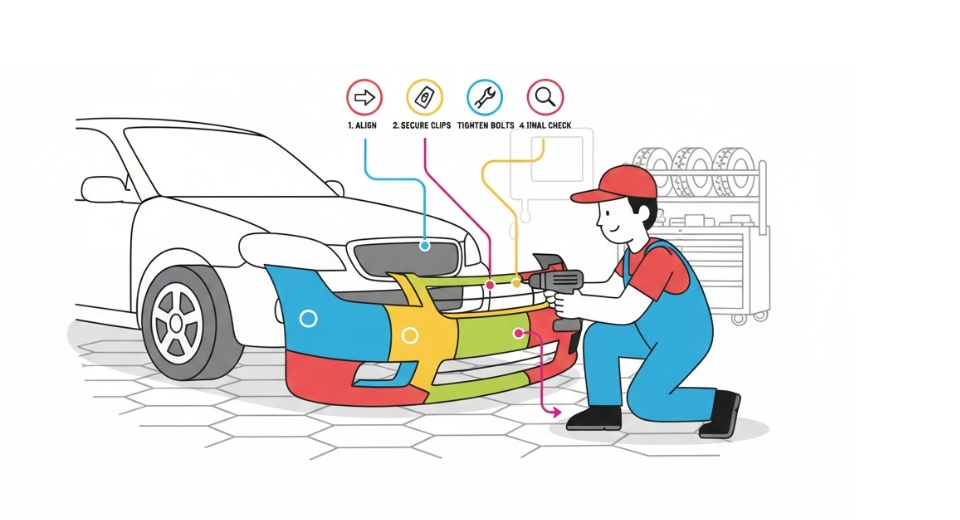
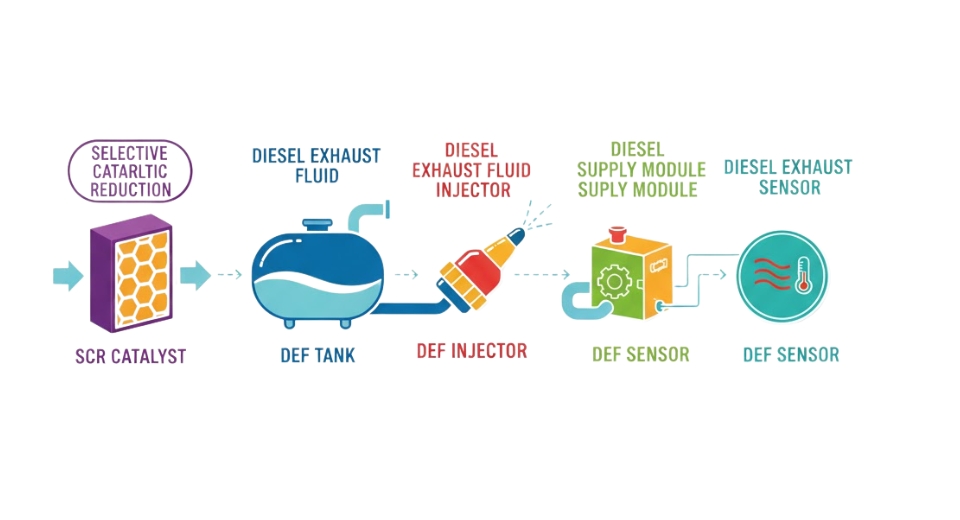
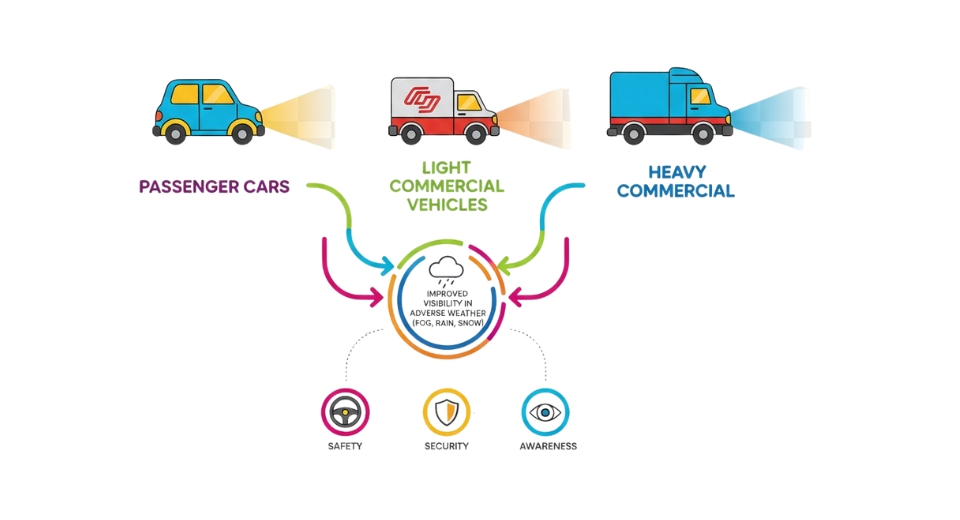
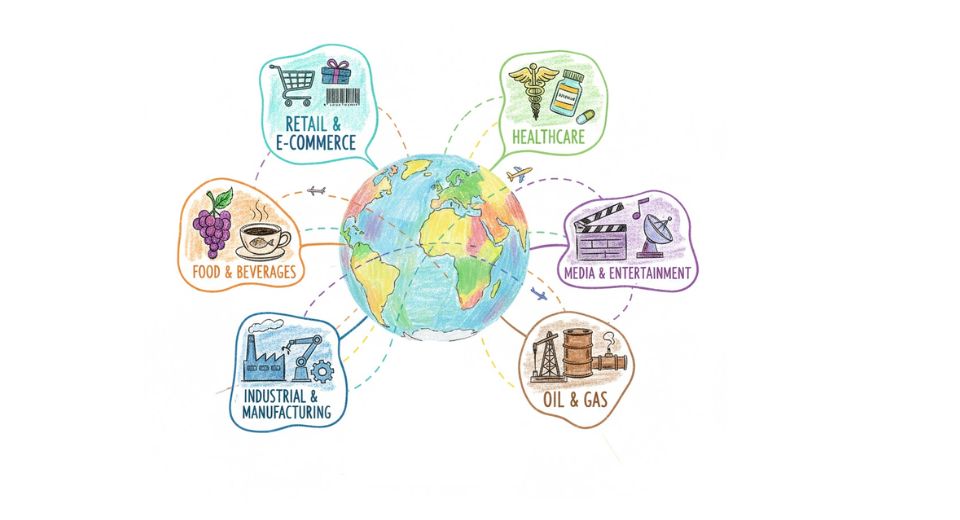

 US: +1 3023308252
US: +1 3023308252






